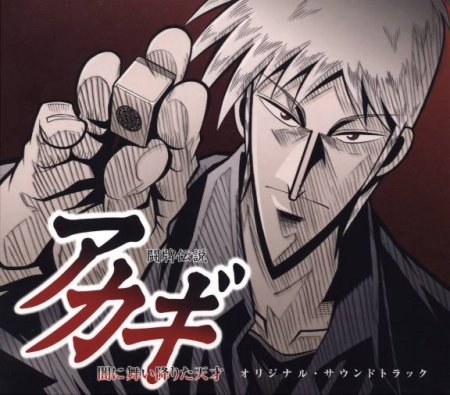It’s been a little while since Otakon, and Evan has been a little too busy to get all our coverage up on time. But fret not, because Evan, Ink, and David have got tons of Otakon 2012 panel impressions for you after the break! Did you go to an awesome panel or event that we didn’t mention? Let us know in the comments!
Riichi: Japanese Mahjong, Anime, and You
David: I missed about half the panel thanks to some issues with the badges, though I was able to join in comfortably enough given my familiarity with the game of mahjong. Considering that not even I know the full rule set of any particular style of mahjong after playing the game for about two years, Carl Li (of Ogiue Maniax) and Dave Cabrera (of Colony Drop and Otaku USA Magazine) wisely planned the panel to discuss the absolute basics of Japanese mahjong. Every common mechanic of mahjong was broken down for the audience, followed by a demonstration in mahjong anime, usually leaning toward the absurd. With only an hour to present, there wasn’t much time to talk about mahjong strategy, though spending some time to explain why anime mahjong play is highly improbable at least should steer curious newbies away from trying to win on a draw from the dead wall every time.
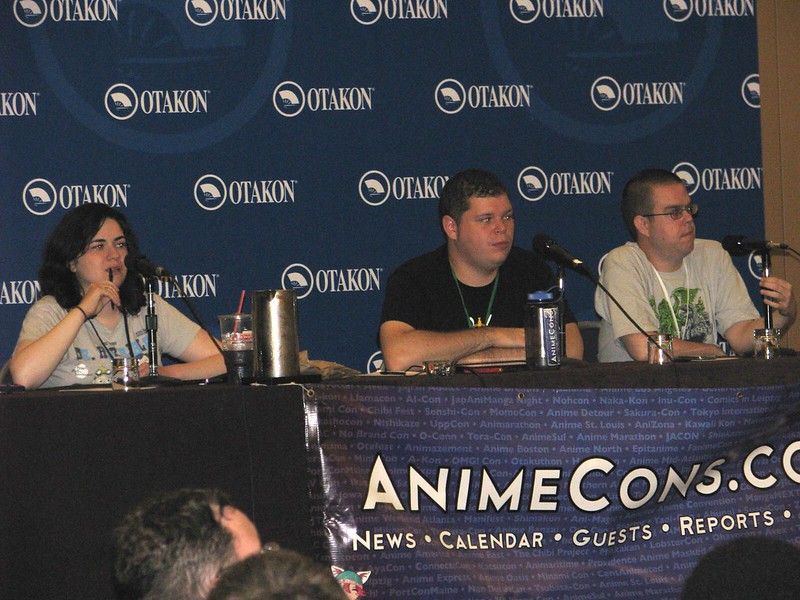 The Aging Otaku: Anime Fandom and Getting Older
The Aging Otaku: Anime Fandom and Getting Older
Ink: Panelists Doug Wilder, Elizabeth O’Malley, and Charles Dunbar kept nostalgia at a minimum to focus on how fans’ roles change as celebratory cakes grow brighter with annual candles. Topics included identifying with how current shows appeal to younger generations, what exists in anime fandom exclusively for older fans, and how older generations can be effective in building a community that has something to offer fans of all ages. From internalizing the humility associated with one’s own “gateway anime,” to giving feedback at cons, and actively shaping con programming by creating panels with more intellectually mature content, there were a great number of suggestions that promoted not only community but a bolstered individual experience as well.
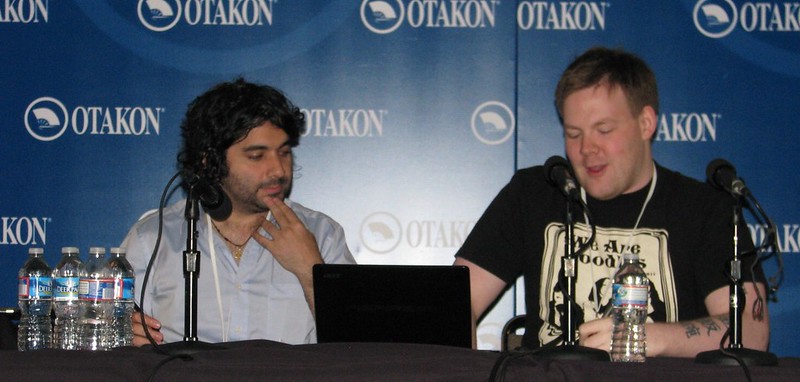 Video Games as Literature: Approaching a New Criticism
Video Games as Literature: Approaching a New Criticism
Evan: This was one of the first panels I went to at Otakon, and it was easily my favorite of the con. Run by Dave Riley (one half of the Fast Karate for the Gentleman podcast and a contributor to Otaku USA Magazine) and Ajay Singh Chaudhary (Director of the Brooklyn Institute for Social Research), the panel covered video game criticism from two perspectives: that of the journalist (Dave), and that of the academic (Ajay). The two friends combined a quick, dry sense of humor with probing questions about video games’ status in society and what that means for writing about them. Dave particularly focused on the game Spec Ops: The Line — a title he discussed at length on his podcast — and how it deconstructs the war shooter genre, but later trained his strong opinions on Colin Moriarty‘s now-infamous IGN piece on political correctness in video games. (Admittedly, Dave sort of talked past him by discussing people’s tendency to silence “this game is bad” criticism, when Moriarty was talking about taking offense.) Ajay’s segment was filled with long quotes and famous names in art and cultural theory, from Marcel Duchamp to Walter Benjamin. Easily the most interesting idea he brought up was that the traditional view of the audience as a “reader” doesn’t apply well to games; calling gamers “actors” is more appropriate. Dave and Ajay’s panel would have benefited from a more narrow focus, but through its winding, non-linear discussion, it served as an engrossing introduction to a very important topic.
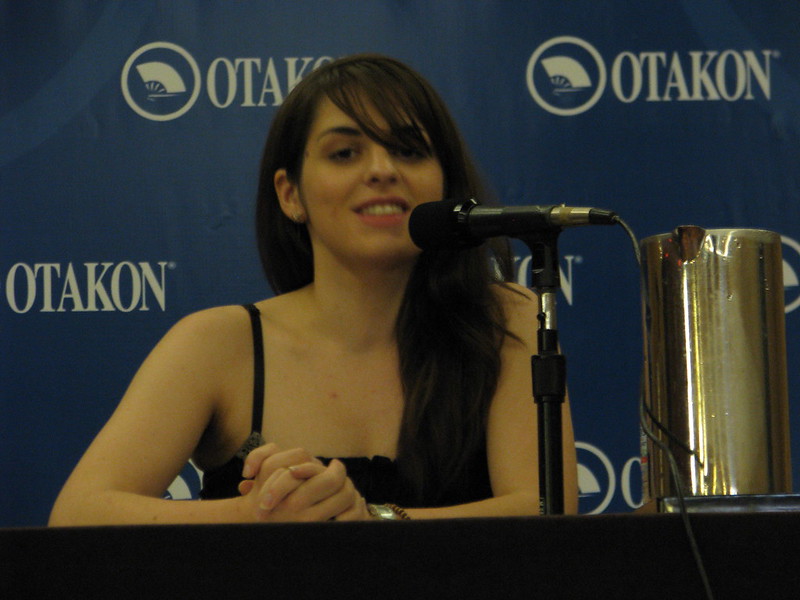 The Mountain of Fear and the Female Medium
The Mountain of Fear and the Female Medium
Ink: There’s a mountain in Japan, Mount Osore (Osorezan) or Mount Fear/Mountain of Horror, on which festivals are held twice yearly, wherein spiritual mediums — Itako and Goitzu (I may be mistaken on the spelling there) — channel the dead in order to give their grieving loved ones closure. The panelist explained, in depth, the nature of the ritual, the symbolic Buddhist significance of the mountain, as well as the defining nature and practices of the different mediums. It was fascinating to learn about this sacred site inside a crater of a dormant volcano, and the panelist truly sounded like she had done her research, but all that content and prep work was trumped by her monotone delivery and lack of visual aids. While the lack of vocal variance was making me nod off, the absence of a slideshow or PowerPoint made accounting for spelling difficult to say the least. Interesting topic, but the presentation could use some work to help keep attendees interested.
 New Anime for Older Fans
New Anime for Older Fans
Evan: The anime bloggers known as the Reverse Thieves (a.k.a. Alain and Kate) have previously presented wonderful little panels about anime that appeal to non-anime fans, detective-themed anime, and other themes, and at this year’s Otakon they leveraged their considerable collective experience to recommend recent anime series that appeal to older fans. These ended up being largely recommendations for people who got into anime in the ‘90s but since grew out of it, and while I haven’t seen everything they mentioned, nearly all of them seemed like excellent recommendations. Obvious (and utterly appropriate) choices like Redline were listed alongside more quirky titles like The Daily Lives of High School Boys, though the occasional odd choice threw me off (Fate/Zero? I feel like that’s impenetrable for people unfamiliar with the Fate universe). Furthermore, the Thieves’ carefully selected video clips convinced me to check out all but one of the series (Tiger & Bunny being the only exception, though it’s the show’s fault, not the panelists’). Overall the presentation served as a superb roadmap to modern anime, accented with a breezy, often humorous delivery and Al and Kate’s trademark affability.
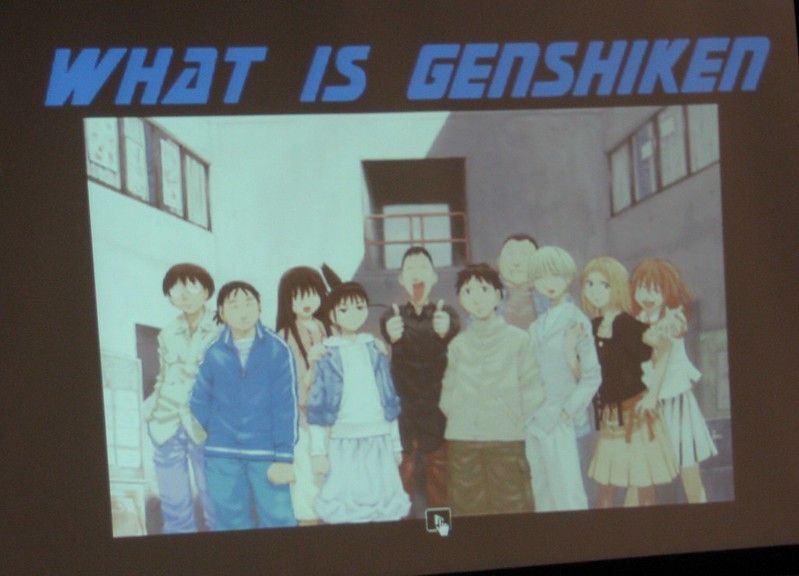 Genshiken: The Next Generation
Genshiken: The Next Generation
Ink: To those who have only seen the anime, Genshiken (a series about a college anime club) stops an arc or few short of the manga. That means there still remain stories to be told concerning familiar characters as well as the crossover to the next generation. Panelist Viga (of Panelburg) ran the audience through old and new generations, character by character, discussing differences in traits, theme, and focus. The panelist’s exuberance for the title did not detract from her critiques of how the Genshiken generations differ. Instead, her joviality and insight seemed the best kind of advertisement for not settling with the end of the first generation’s involvement as the end of Genshiken as a whole. After attending this panel, I look forward to, as pointed out by Viga, Genshiken’s next generation being used to explore “what defines me” as opposed to the first generation’s concern with how they appear to others.
 The Slightly Perverted Genius of Go Nagai
The Slightly Perverted Genius of Go Nagai
Ink: What ended up being the most fascinating part of this panel was the story of why Go Nagai (Mazinger Z, Cutey Honey) decided to go balls-to-the-wall “slightly perverted.” This story was relayed by a friend after the panel, however, and was not actually a part of the panel proper … which actually characterizes this clip show pretty well. Don’t get me wrong, the panelists did a fine job of presenting several series from Go Nagai. Each example featured a clip from the show as well as what seemed a thorough timeline of relevant reproductions, offshoots, and sequels. In the end, however, there wasn’t much background info given regarding Go Nagai’s involvement and, as I heard amidst the crowd while exiting, the older works were more or less glossed over. Still, to the uninitiated, the string of clips was strong enough to give a good taste of what could be expected when traversing the works of Go Nagai.
 Anime’s Craziest Deaths
Anime’s Craziest Deaths
Evan: People often think that their favorite death scene is one of the craziest ones in all of anime, but Daryl Surat of the Anime World Order podcast and Otaku USA Magazine has an uncanny knack for unearthing scenes that most fans would never come across in their average viewing. From an avalanche of grenades in Crying Freeman to an unthinkably brutal series of deaths in Blood-C, Daryl’s choices were gruesome, absurd, and ridiculously entertaining. Of course, it helps that Daryl is great at providing quick, funny little transitions between his videos, which formed the all-important mortar between his bloody bricks. Craziest Deaths is a perennial Otakon classic, and I highly recommend next year’s installment to anybody with the mental fortitude to stand an hour and a half of its host’s twisted sense of humor. (Side Note: Props to Daryl for including the TRUE craziest death in the already crazy-death-filled Golgo 13 movie: the grenade in Silver’s mouth.)
 MangaGamer: The Now and Future of Visual Novels
MangaGamer: The Now and Future of Visual Novels
David: MangaGamer’s panel was an eye-opening view into the reality of niche media publishing. They announced four new nukige titles (erotic content over story, there is a difference from standard eroge), though it was clear on the presenter’s faces that they wanted to have more to announce by Otakon. Half the panel was Q&A where MangaGamer staff waffled and waltzed over questions asking about how negotiations were going for certain games or certain publishers. Accounts of their dealings with Japan describe a microcosm of anime publishing; some developers are enthusiastic about having their games sold overseas while others clam up when negotiations head towards the realistic. A common thread seems to be money as a barrier keeping titles from being localized. No matter how much someone pleads for console ports of visual novel (VN) titles to be brought over, VN publishing in the West seems to be possible only because PC carries little of the development costs, not to mention neither Sony nor Microsoft consider VNs “games” in the traditional sense.
I’ve observed a surge in interest for visual novels in the West over time, yet the attitude held by the publisher seems to be that interest doesn’t necessarily translate to the market. Because of the relaxed relations between publisher and consumer, some of the drunker staff members weren’t afraid to point the finger at the audience for failing to keep their word when sales for games didn’t meet expectations. When prodded about the dearth of any female-targeted titles (namely BL games), one of the female staffers spoke up to point out that, aside from the prohibitive costs of licensing voicework, BL fans above all other fandoms are among the stingiest and least willing to put the money up. No one selling VNs does so from a throne of gold, so while I might not be in love with every game MangaGamer releases, there’s an appreciated degree of sincerity in their business that differs from the telegraphed interaction with fans from far more successful publishers.
 Ai Nonaka Q&A
Ai Nonaka Q&A
Ink: Attending a Q&A session for a Japanese voice actress is a little like questioning the personification of a press release. Expect to hear how wonderful it was to work with absolutely everyone he or she ever worked with, how much he or she loved every character she played, and invocations of favorite lines in voices from past roles. While all this was true for Ai Nonaka (Kyoko in Madoka Magica), what made the Q&A charming was that she was the embodiment of “kawaii.” Super sweet and humorous, Nonaka actually seemed to have a pretty decent grasp of English for short replies. The most endearing moment of the session was when someone dressed as Kyubey stepped up to the mic to ask a question. Nonaka feigned fear with an overly dramatic shrill voice and then complimented the “very pretty” cosplayer, who then swooned over the remark.
 Sexism in Anime and Fandom
Sexism in Anime and Fandom
Ink: For a topic as potentially volatile as sexism, Lauren Orsini and Patrick Taylor did a great job of maintaining panel momentum by letting each commenter be heard while keeping subsequent back-and-forths to a bare minimum. Also lending to good coverage of the topic at hand, the panelists seemed very comfortable in fielding questions and using their material to support their responses. I wish they were as comfortable in their presentation, which came across as a hokey, in-person radio broadcast. Also, announcing that “We don’t actually have a lot to say about our surveys” begs the question of why they were even conducted. I also had issues with the attempted neutrality, which actually came across to me as defending sexist practices or neutralizing its effects just because sexism was found on both sides of the aisle. To my understanding, this was the panel’s first iteration. After its presenters’ nerves are steadied, I think future incarnations (which I hope will come to be) will be much stronger.
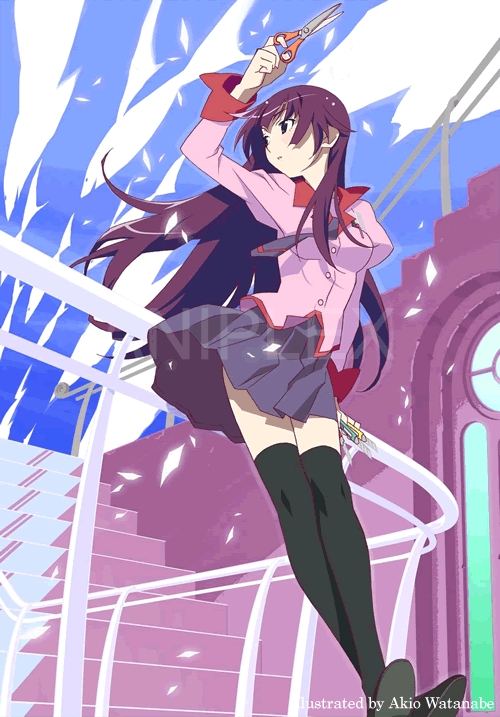 Aniplex of America Industry Panel
Aniplex of America Industry Panel
David: The Aniplex Industry panel for Otakon ‘12 might be the last time I ever go out of my way to attend an anime industry panel. To say that they ran the exact same trailer reel from last year’s panel may not be too far from the truth. The details on things I’d actually be interested in buying (Bakemonogatari and the Kara no Kyoukai re-release) were withheld, never mind that they will both be released in a couple of months. Instead, there was a whole lot of Blue Exorcist double-dipping and Baccano! getting re-released again.
I once said Aniplex titles only sell on the strength of being an Aniplex title, with little regard towards marketing or pricing to normal people. I really can’t tell them how to sell their anime, especially if the model in place has been working for them. However, I’m in a room filled to capacity with young fans, many of whom have probably now been burned in their exuberance to adopt early now that a version of the product they were sold is available in high definition with an english dub track. Considering what happened the last time the American branch of a Japanese publisher played the Yes Man, it starts looking oddly appropriate for the Bandai booth to have fused itself to the Aniplex booth in the Dealer’s room.
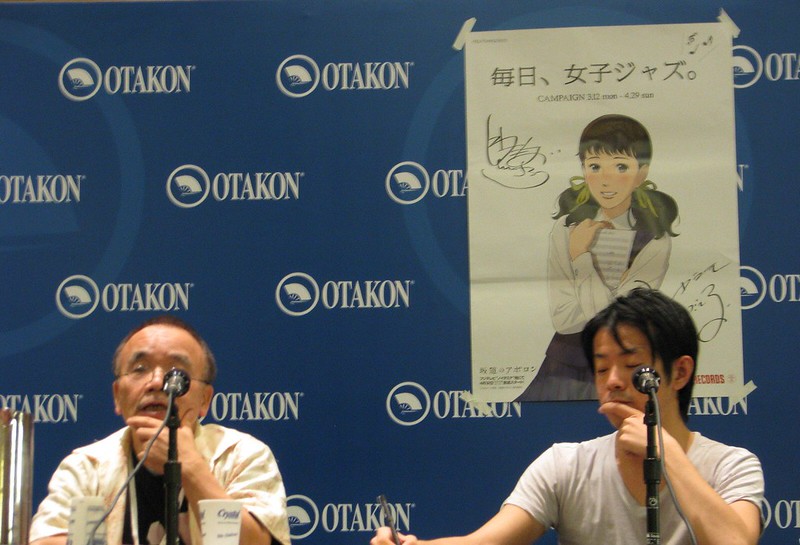 Masao Maruyama Q&A
Masao Maruyama Q&A
Ink: Masao Maruyama, formerly of Madhouse, decided to start studio MAPPA (Maruyama Animation Produce Project Association), and this Q&A was all about the reasons behind the smile on Maruyama’s face. In addition to promoting the studio’s first major effort, Kids on the Slope (KotS), by showing its ending animation, there was a Meiji Gummies commercial — main message: buy our candy, find true love — MAPPA had produced which was also shown. Maruyama went into details about production of KotS and explained the reason behind MAPPA’s founding was the production of distinct and different types of animation. Specific aspirations alluded to included an anime adaptation of Naoki Urasawa’s Pluto manga as well as the realization of Satoshi Kon’s The Dreaming Machine. While MAPPA makes a great acronym, it is also a great metaphor. MAPPA (literally, bare naked) was conceived as a studio name to represent starting over again from scratch, penniless. Hopefully, with more shows like KotS, MAPPA will be rolling in investable dough soon enough.
 Moral Philosophy and Madoka Magica
Moral Philosophy and Madoka Magica
Ink: Using the behaviors of the main characters of Puella Magi Madoka Magica, the panelist attributed a corresponding moral philosophy to each and then opened up both the attribution and the philosophy to questions from the audience. Each proposed philosophy was backed up by a brief explanation of its principles as well as select clips from the show. Overall, the thoughts presented were cohesive and made entertaining by the panelist’s sense of humor. The only thing that made this panel shaky was the insistence on audience participation in the form of Q&A interspersed between characters/philosophies. Timing issues cut off questioning, which had been stressed multiple times as important to the panel, as to accommodate the entirety of the presentation. Had the Q&A taken place at the presentation’s end, the panelist wouldn’t have had to feel rushed, and the questions could’ve covered the range of presented philosophies all the same.
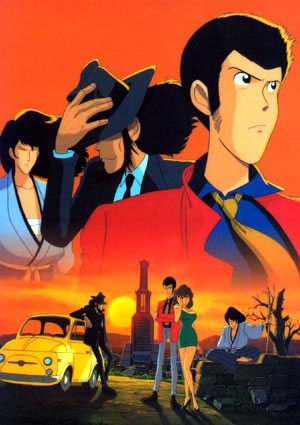 Lupin the Third: 40+ Years of Heists and Hijinks
Lupin the Third: 40+ Years of Heists and Hijinks
David: Daryl Surat’s Lupin panel was the only panel I attended just to kill time at Otakon. I heard a lot of research was put into the panel in wake of the Discotek Lupin Season 1 release to avoid violent outbursts from Lupin historians in the audience, though it gave the panel something of an academic flavor, likely not what people were looking for in an 18+ panel running at midnight. Lupin can get really seedy and offensive, which makes for perfect clip fodder, but the need to teach audiences clashes with the desire to just show the entire Hitler episode of the Lupin TV series. Daryl’s at his best when he’s talking over videos of gruesome ’80s anime deaths and he’s also capable of giving informative panels, but the time slot led to an identity crisis that turned the panel into a retrospective without a strong hook.
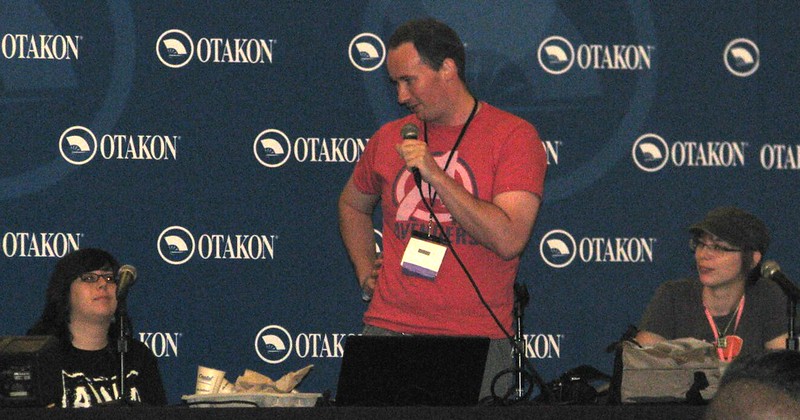 The “Art” of Fanservice
The “Art” of Fanservice
Evan: I spent a little bit of time at Mike Toole’s fan-favorite panel “Dubs That Time Forgot” before deciding that I wanted to try something new this year and hopping out to catch “The ‘Art’ of Fanservice.” Presented by Anime World Order’s Gerald Rathkolb and backed up by his podcast co-host Clarissa and ex-roommate Amanda, this was an extremely 18+ look at what “fanservice” means in anime, as well as the history of the, um, art. (Fanservice is, of course, the strategic inclusion of sexualized — but not pornographic — material to satisfy fans.) Gerald looked at the origins of the term “fanservice” (it was originally just called “service,” in reference to an extra service added free of charge) and its many varieties for both men and women, and I found this depth of research about such a disregarded aspect of anime fascinating. Naturally there was lots of dirty humor to be had, and Gerald did a great job of riling up the crowd with his racy video clips, but unfortunately the panel seemed a little bit rushed. Parts of it lacked the clarity and polish that I expect of Anime World Order, but I expect that will be ironed out in future iterations. Here’s hoping we see a bigger, better version at another con sometime soon!
 Sentai Filmworks Industry Panel
Sentai Filmworks Industry Panel
Ink: No fronting here: I’m completely biased. Sentai Filmworks makes available in the USA anime that I want to buy (as opposed to the growing percentage of boob-a-licious licenses from a certain other distributor). As touted in this panel by Dave Williams (formerly of ADV), Sentai’s working hard and smartly to continue to meet the demands of fans who beg for quality. But it’s not what Williams says that counts, it’s how. Instead of side-stepping answerable questions about sales and concerns, Sentai’s representative laid out everything that goes into the company’s decision-making process. He gave explanations and shared worries behind the cost of BD releases and dubbing. He also offered insight into how the company chooses anime to license (a mix of streaming numbers and hunches). Williams, in his refreshingly honest demeanor, was also not shy about citing examples of series that had seen disappointing sales. While listening to a representative of the company fighting Goliath over licensure in the open-air arena of a niche market in a bad economy, it’s hard not to route for David.
Click here for more coverage of Otakon 2012.

